
The Golden Raspberry Awards is a parody award show honoring the worst of cinematic failures. Co-founded by UCLA film graduates and film industry veterans John J. B. Wilson and Mo Murphy, the Razzie Awards' satirical annual ceremony is preceded by its opposite, the Academy Awards, by four decades. The term raspberry is used in its irreverent sense, as in "blowing a raspberry". The statuette is a golf ball-sized raspberry atop a Super 8mm film reel atop a 35-millimeter film core with brown wood shelf paper glued and wrapped around it—sitting atop a jar lid spray-painted gold. The Golden Raspberry Foundation has claimed that the award "encourages well-known filmmakers and top-notch performers to own their bad."
The 2nd Golden Raspberry Awards were held on March 29, 1982, at an Oscar night potluck party to recognize the worst the film industry had to offer in 1981.

From Justin to Kelly is a 2003 American musical romantic comedy film, written by Kim Fuller and directed by Robert Iscove. The movie features Kelly Clarkson, the winner of the first season of American Idol, and Justin Guarini, the runner-up. In 2005, the film was a critical and commercial failure and received the Golden Raspberry Award for "Worst 'Musical' of Our First 25 Years." It has gained a reputation as one of the worst movies ever made.

Bo Derek is an American actress and model. She is best known for her breakout role in the romantic comedy film 10 (1979). Her other credits include Richard Lang's A Change of Seasons (1980) and the ill-fated films Fantasies, Tarzan, the Ape Man, Bolero (1984), and Ghosts Can't Do It (1989), all four of which were directed by her first husband, John Derek. Widowed in 1998, she married actor John Corbett in 2020.
The 11th Golden Raspberry Awards were held on March 24, 1991, at the Hollywood Roosevelt Hotel to recognize the worst the movie industry had to offer in 1990.
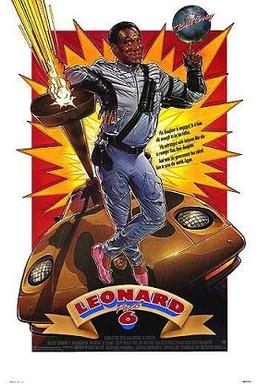
Leonard Part 6 is a 1987 American spy parody film. It was directed by Paul Weiland and starred Bill Cosby, who also produced the film and wrote its story. The film also starred Gloria Foster as the villain, and Joe Don Baker. The film was shot in the San Francisco Bay Area. It earned several Golden Raspberry Awards; Cosby himself denounced and disowned it in the press in the weeks leading up to its release.

Two of a Kind is a 1983 American romantic fantasy crime comedy-drama film directed by John Herzfeld and starring John Travolta and Olivia Newton-John. The film reunited Travolta and Newton-John who had appeared together in 1978's Grease. The original musical score was composed by Patrick Williams. Travolta plays a cash-strapped inventor while Newton-John plays the bank teller whom he attempts to rob. They must come to show compassion for one another in order to delay God's judgment upon the Earth. Despite being a critical failure, the film's soundtrack was a commercial success, yielding three hit singles for Newton-John and being certified Platinum.

Harum Scarum is a 1965 American musical comedy film starring Elvis Presley. It was shot on the original Cecil B. DeMille set from the film The King of Kings, with additional footage shot on location at the Iverson Movie Ranch in Chatsworth, Los Angeles. Some of the film was based on Rudolph Valentino's 1921 movie The Sheik.
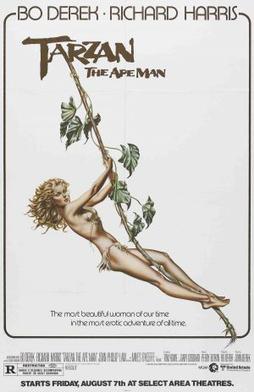
Tarzan, the Ape Man is a 1981 American adventure film directed by John Derek and starring Bo Derek, Miles O'Keeffe, Richard Harris, and John Phillip Law. The screenplay by Tom Rowe and Gary Goddard is loosely based on the 1912 novel Tarzan of the Apes by Edgar Rice Burroughs, but from the point of view of Jane Parker.
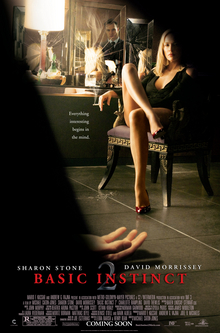
Basic Instinct 2 is a 2006 erotic thriller film and the sequel to 1992's Basic Instinct. The film was directed by Michael Caton-Jones and produced by Mario Kassar, Joel B. Michaels, and Andrew G. Vajna. The screenplay was by Leora Barish and Henry Bean. It stars Sharon Stone, who reprises her role of crime mystery author Catherine Tramell, and David Morrissey. The film is an international co-production of German, British, American, and Spanish production companies.
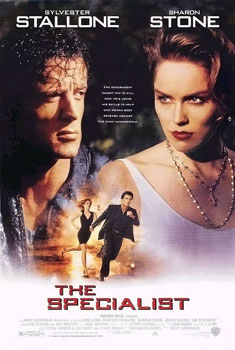
The Specialist is a 1994 American action thriller film directed by Luis Llosa and starring Sylvester Stallone, Sharon Stone, James Woods, Eric Roberts, and Rod Steiger. It is loosely based on "The Specialist" series of novels by John Shirley. The film was met with negative critical response, but became a box office success, and Gloria Estefan's version of "Turn the Beat Around" became a dance sensation, becoming #1 on Billboard’s Dance Club Songs chart.
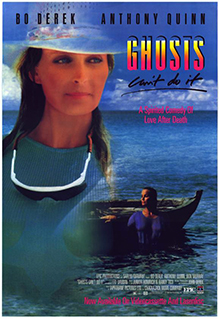
Ghosts Can't Do It is a 1989 romantic fantasy comedy film, the last film written and directed by John Derek, and starring Bo Derek and Anthony Quinn, with Julie Newmar and Leo Damian in supporting roles.
The Golden Raspberry Award for Worst Picture is a prize at the annual Razzies to the worst film of the past year. Over the 39 ceremonies that have taken place, 202 films have been nominated for Worst Picture, with three ties resulting in 42 winners.
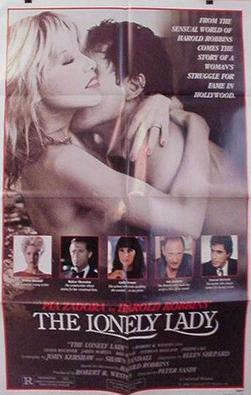
The Lonely Lady is a 1983 American drama film directed by Peter Sasdy, adapted from Harold Robbins' 1976 novel of the same name, believed to have been based on Robbins' memories of Jacqueline Susann. The film stars Pia Zadora in the title role, Lloyd Bochner, Bibi Besch, Jared Martin and Ray Liotta in his film debut. The original music score was composed by Charlie Calello.

Dirty Love is a 2005 American romantic comedy film written by and starring Jenny McCarthy and directed by John Mallory Asher. At the time of filming, McCarthy and Asher were married; they divorced the month the film was released. Playing heavily off McCarthy's reputation for toilet humor, the film received negative reviews from critics and received the Golden Raspberry Award for Worst Picture, as well as Worst Screenplay, Worst Director, and Worst Actress for McCarthy.
The Stinkers Bad Movie Awards was a Los Angeles–based group of film buffs and film critics devoted to honoring the worst films of the year.

The Official Razzie Movie Guide: Enjoying the Best of Hollywood's Worst is a 2005 book about the booby prize award show the Golden Raspberry Awards (Razzies), written by John J. B. Wilson, founder of the awards ceremony. The book was published in 2005 by Warner Books, the same year as the 25th Golden Raspberry Awards.
The 10th Stinkers Bad Movie Awards were released by the Hastings Bad Cinema Society in 1988 to honour the worst films the film industry had to offer in 1987. As follows, there was only a Worst Picture category with provided commentary for each nominee, as well as a list of films that were also considered for the final list but ultimately failed to make the cut.
The 1978 Stinkers Bad Movie Awards were released by the Hastings Bad Cinema Society in 1979 to honour the worst the film industry had to offer in 1978. The ballot was later revisited and the expanded version was released in the summer of 2003. Listed as follows are the original ballot's picks for Worst Picture and its dishonourable mentions, which are films that were considered for Worst Picture but ultimately failed to make the final ballot, and all nominees included in the expanded ballot. All winners are highlighted.













